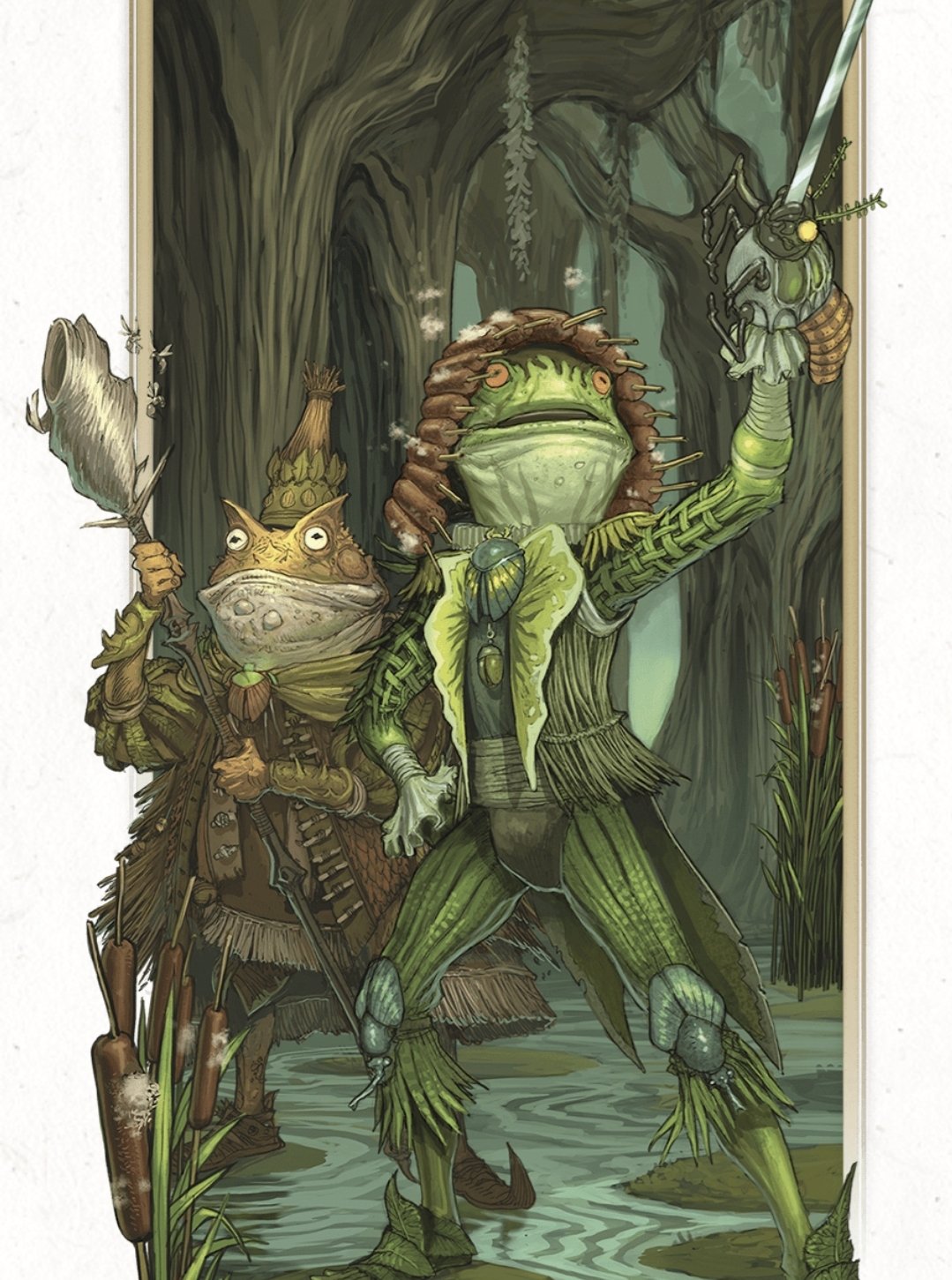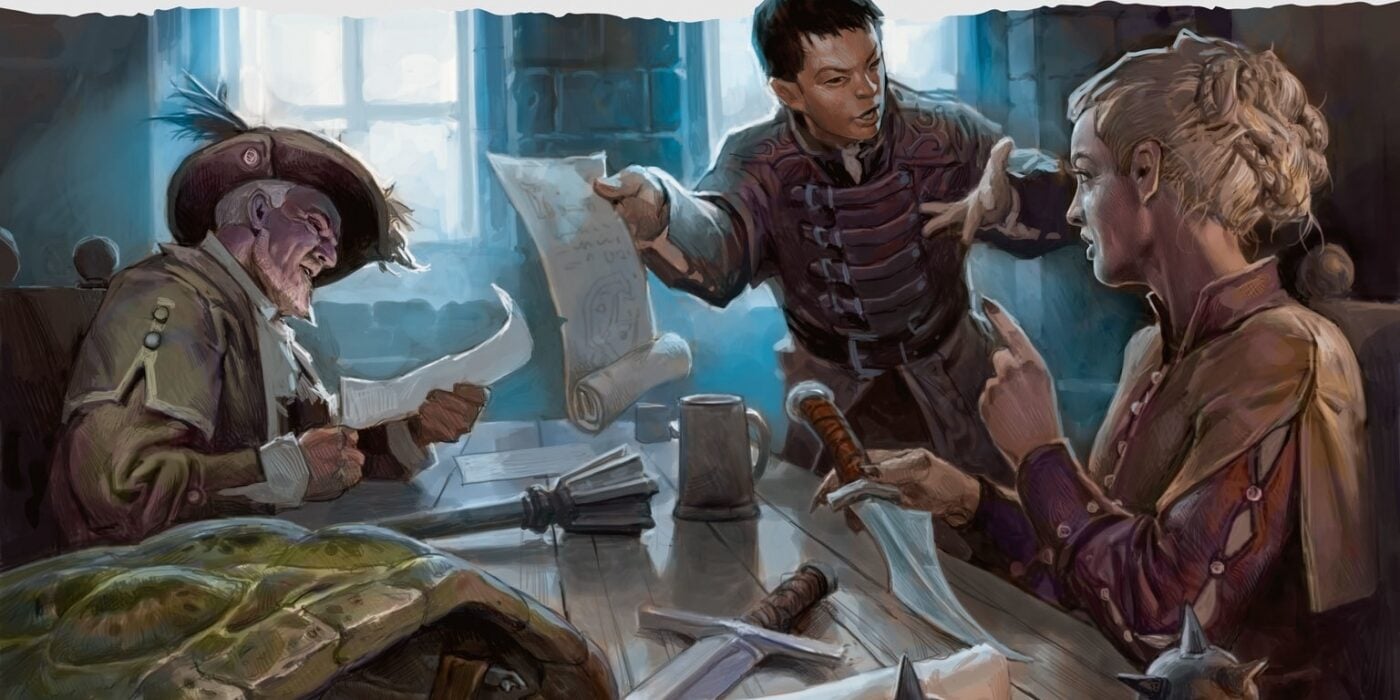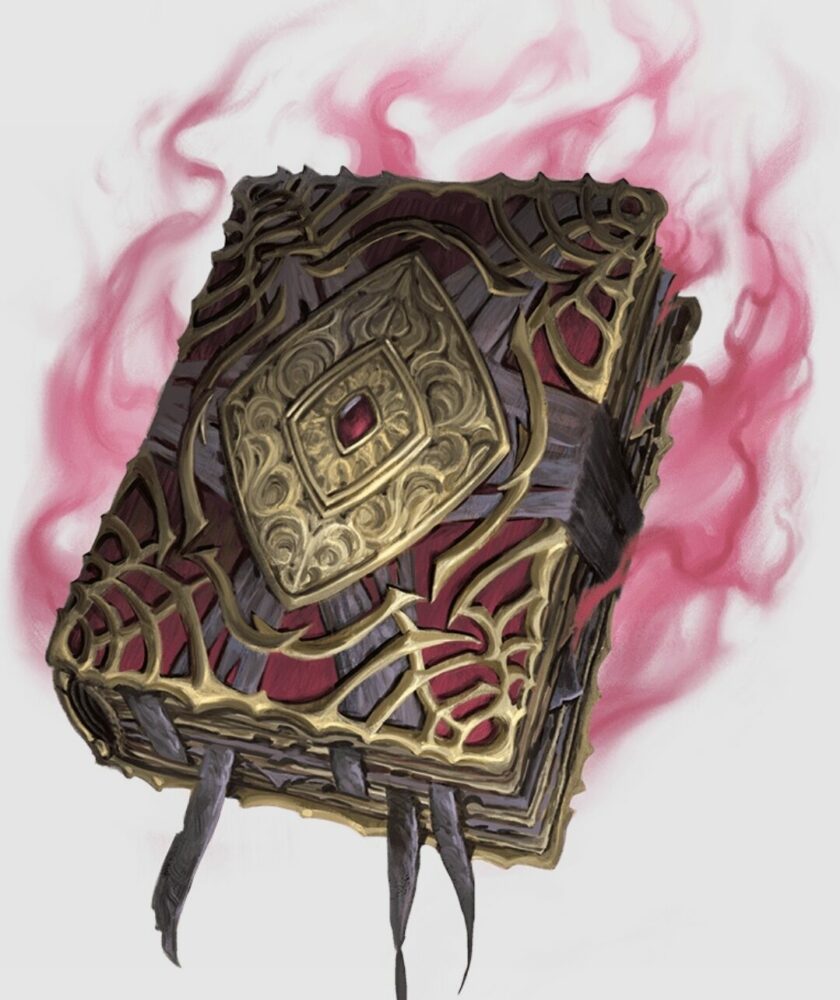D&D: Five Ways To Make Learning The Game Easier

New to D&D? No sweat, here are five easy ways to make learning the game easier on yourself. For certain values of easy.
Learning D&D can seem like a daunting task. Partially because there’s a lot of little fiddly details to learn—what do you mean I can’t cast 3rd-level spells, I’m 3rd-level I should be able to cast Fireball; what do all the conditions mean; what does Action Surge do again —but learning D&D comes with added pressure because of the perceived stakes.
D&D is, by its nature, a social game. And learning it, by extension, means learning it in front of your friends. Or worse, randos that you met on the internet who claim that they are experts. But on top of the mortifying dilemma of being perceived while also not being good at something, there are narrative stakes too. You have a character! A little guy you made up all by yourself. You would die for them. And now, some SADIST on the other side of a DM screen is trying to tell you there are CONSEQUENCES? For YOUR ACTIONS?
Don’t worry. You can make it easy on yourself. Learning D&D doesn’t have to be daunting.
Make Notes For Yourself

One of the best ways to learn the rules—and especially to learn your character—is to make yourself little notes that reframe what you can do in a language you understand. Because, D&D is written in its own particular style. You’ll see phrases that are clunky and unwieldy (to be generous) because they have to try to be both broad and clear enough to address every situation. But if that was the case, we wouldn’t need Sage Advice.
I find it can be helpful to make a shorthand of what your abilities do. Make it make sense to you – maybe you have a little note about your Reaction abilities/spells that reminds you of the trigger. Something like “When Hit By An Attack: +5 to AC” for the Shield spell. Or “When An Attack Misses Me: Attack them back” for the Riposte Battlemaster Maneuver. It helps to have a handy reference of what your character can do – and sometimes just writing this stuff out helps it sink in.
Ask Questions

Your friends/internet randos are there playing the game with you. Why not make them a resource? You can always ask questions about how something works. That’s typically the way most people learn, by asking “what do I add to my skill check again?”
But, you don’t have to ask the moment that a question becomes relevant. You can ask beforehand—if you know you’re going to make a skill check, a quick “hey, what do I do again” to someone you know can save you some nerves. Same goes with leveling up. That’s another place to have a conversation about the rules – if you have choices to make, ask the other players what they think, or why you might want to do something. If D&D players who’ve played a while like one thing, it’s talking about the rules.
Play a Solo Game

Personally, I find the best way to learn is by playing. And you don’t even have to have other people to play the game. Especially with the suite of digital tools available to players these days. It is so easy to find a random table, or even an automated dungeon generator and then you take a character and go.
Play the game. See where you feel solid on the rules. See where you feel shaky. And since it’s just you, you can take all the time you want to look up rules.
Making Characters For Edutainment

One of the most fun things about any ttrpg is making a character. And there is no better way to get acquainted with some of the most relevant rules that you’ll be playing with, by creating a character from scratch.
It makes you go through the process, and often you’ll find the information you need while you’re building your character. Using a character generation program can help automate some of this and make sure you’re not making mistakes, but I find there’s no substitute for rolling up your sleeves and getting your hands dirty with graphite or ink on a notebook.
Read the Rulebook

This is one of those pieces of advice that feels like it should be too simple, too clean to work. It’s on par with “are you feeling bad? you’re probably hungry and haven’t had any actual water to drink today” or “want better sleep? don’t look at phone before bed” or “moving your body improves your mood”. It’s borderline patronizing, and yet, also true.
There is no substitute for reading the rulebook. Not everyone learns that way. But it’s where you can find the answers to most of your questions. It’s where the rules themselves are contained. Programmers everywhere know full well the value of R-ing TFM, and it holds true in real life and learning D&D too.
Happy adventuring!





